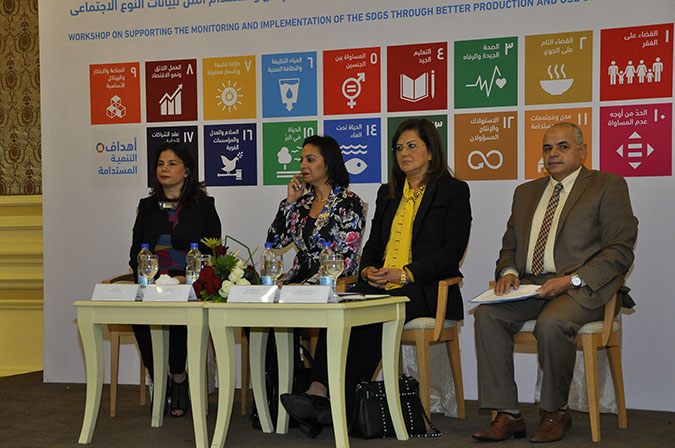Workshop on Supporting the Monitoring and Implementation of the SDGs through Better Production and Use of Gender Statistics
Date:

UN Women Egypt organized a workshop on Gender Data and Statistics in Egypt:Supporting the Monitoring and Implementation of the SDGs through Better Production and Use of Gender Statistics on Thursday, October 25th at Al Massa Hotel.
The opening remarks of this workshop will be given by Ms. Blerta Aliko, UN Women Country Representative; Dr. Maya Morsy, President of the National Council for Women; Mr. Abdelhamid Sharafeldin, Head of Population Statistics and Census Sector, Central Agency for Public Mobilization and Statistics (CAPMAS); Dr Hala Elsaid, Minister of Planning, Monitoring and Administrative Reform.
The workshop consists of three different sessions that tackles the following: the sustainable development goals and their inclusion into the national plans; the production of gender statistics in Egypt and opportunities to enhance data users’ access and strengthening capacities for better use of gender statistics.
The workshop aims at:
- Bringing together data producers and data users, from government agencies and ministries, national statistical office, international organisations, CSOs and technical experts, to discuss how to improve gender data production, dissemination and analysis in Egypt (including both data disaggregated by sex and data relevant to women and girls), in order to enable the monitoring of the gender-specific SDGs.
- Seeking seek inputs from those key relevant partners to foster better use of gender data in SDGs monitoring and to identify existing technical obstacles and opportunities around data integration and cross-sectoral collaboration between the various actors at the national and local levels.
- Providing the opportunity for both data producers (from National Statistical Office and Ministries) and data users (e.g. national partners, International Organisations) to exchange key lessons learned and good practices in relation to gender responsive data and data collection and dissemination tools to monitor SDGs.